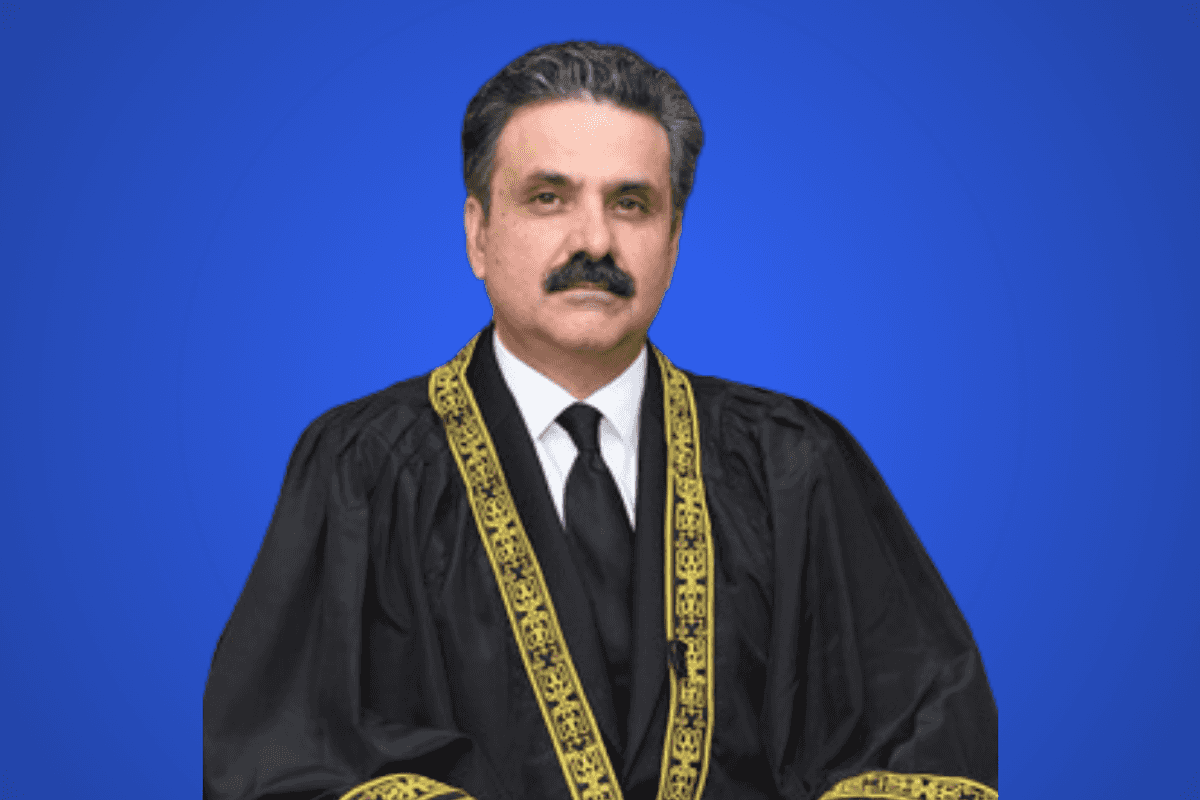Who is Justice Yahya Afridi, Pakistan's next Chief Justice?
Breaking with tradition, 59-year-old justice from tribal region nominated through historic parliamentary committee vote instead of seniority

Umer Zaib
Senior Producer
Umer Zaib is a Karachi-based journalist and good Samaritan with five years of experience at Pakistan's leading news publications.

Justice Yahya Afridi.
Nukta
Justice Afridi to take oath on October 26, 2024
Known for independent stance, including recent dissenting opinions on PTI reserved seats and military interference cases
Once formally endorsed, Justice Yahya Afridi will take oath as Pakistan's Chief Justice on October 26, 2024, bringing to the nation's highest judicial office a reputation for neutrality amid recent periods of judicial division.
His appointment comes as Pakistan's judiciary navigates complex political and institutional challenges. For the first time, Pakistan's parliament - not seniority - has decided who leads its highest court.
After the passage of the contentious 26th amendment, a special parliamentary committee nominated Justice Yahya Afridi as Pakistan’s next chief justice with a two-thirds majority. Opposition party Pakistan-Tehreek-e-Insaf (PTI) refused to participate.
Afridi, 59, has established himself as a judge willing to stake out independent positions on controversial cases, often breaking with his colleagues on the Supreme Court bench in significant decisions that have shaped Pakistan's political landscape.
- YouTubewww.youtube.com
The dissenter
In one of his most notable recent decisions, Afridi issued a strong dissenting opinion in the contentious case regarding reserved parliamentary seats for the Pakistan Tehreek-e-Insaf (PTI) party and Sunni Ittehad Council (SIC). PTI lawmakers joined the latter after the apex court barred its candidates from contesting the February 8, 2024, elections using the party symbol.
In his detailed 26-page opinion, he rejected the SIC's petitions while acknowledging PTI's constitutional right to reserved seats, breaking from both the majority opinion and opposing camp.
The SIC does not meet the constitutional requirements for claiming reserved seats, Afridi wrote, while simultaneously emphasizing that PTI, as a recognized political party, qualified for certain reserved positions.
The Chief Justice-nominee made headlines earlier this year when he recused himself from a landmark case involving allegations of military interference in judicial affairs.
The case emerged after six judges of the Islamabad High Court (IHC) wrote an unprecedented letter to the Supreme Judicial Council accusing intelligence agencies of meddling in judicial matters.
In his recusal note, Afridi argued against Supreme Court intervention, writing, "To proceed on the proposed action of suo motu would negate the lessons moved into action by public sentiments no matter how pressing the issue may appear."
His position emphasized the importance of maintaining the independence of high courts, even as it raised questions about how Pakistan's judiciary should respond to alleged military interference.
Another consequential dissent came in 2020 during the high-profile case involving then-Supreme Court Justice Qazi Faez Isa. While declaring Justice Isa's petition non-maintainable, Afridi wrote that "the fundamental rights of a sitting judge would remain eclipsed so far as their enforcement is not in consonance with the terms of their oath of office." He argued that taking the judicial oath subjects one's conduct to office-related restrictions.
Though supporting the reference's dismissal through bar council petitions, Afridi disagreed with fellow judges on key points. He emphasized judges must remain "cautious and forbearing" to protect their office's dignity, avoiding litigation except as a last resort.
He opposed Supreme Court intervention in Supreme Judicial Council matters, stating that "any directions by the Supreme Court setting steps for the Supreme Judicial Council to follow... would be premature and offend the principle of natural justice."
In another significant decision, Afridi issued a dissenting opinion in the review of lifetime disqualification cases. Throughout his participation in the Zulfikar Ali Bhutto presidential reference, Afridi emphasized the need for judicial independence and adherence to constitutional principles.
The judge's journey
During his tenure as Chief Justice of the Peshawar High Court, before his elevation to the Supreme Court in 2018, Afridi presided over several high-profile cases involving terrorism and constitutional matters. As administrative judge of anti-terrorism courts, he played a crucial role in shaping the judicial response to terrorism-related cases in Khyber Pakhtunkhwa province.
Early in his career, as assistant advocate general until 1994, Afridi gained prominence for successfully defending the government's position in cases related to the disqualification of alleged drug barons from the 1993 general elections.
When these individuals challenged their disqualification in the Peshawar High Court, their petitions were dismissed, establishing important precedents for election qualification standards.
Afridi was born on 23 January 1965 in Dera Ghazi Khan and went to high school at Aitchison College Lahore.
He graduated from Government College, Lahore, and earned a master's degree in economics from Punjab University. Justice Afridi also earned a Master of Laws from Jesus College, Cambridge under a Commonwealth scholarship.
His legal career includes founding the prominent law firm Afridi, Shah & Minallah in 1997.
The firm's other partners included Supreme Court Justice Justice Mansoor Ali Shah, who was considered along with Afridi for the Chief Justice nod, and renowned Supreme Court Justice Athar Minallah.
As Chief Justice, Afridi faces several critical challenges, including addressing the backlog of cases and maintaining judicial independence. His past decisions suggest he will likely emphasize constitutional principles and the independence of Pakistan's various courts.







Comments
See what people are discussing